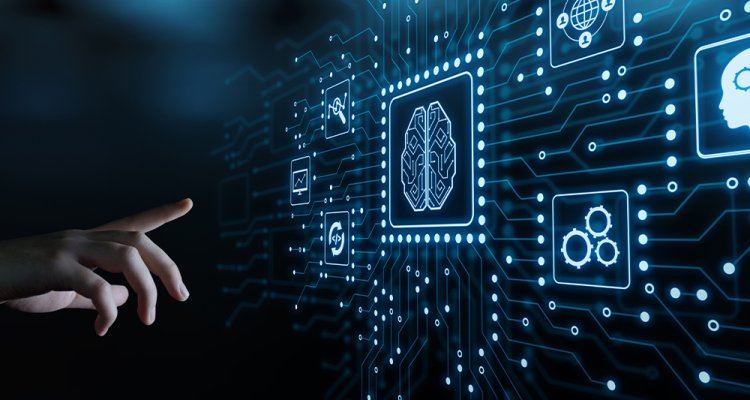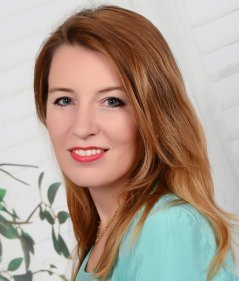
Interview
“Human and machine are the most powerful combination”
“Bringing artificial intelligence (AI) to Wageningen University & Research allows us to create meaningful impact in the real world,” says Anna Fensel, newly appointed associate professor in AI and data science. In her roles as a researcher and lecturer, she aims to empower researchers, students, and the general public alike.
With an impressive and international career that took her from her home country of Russia to Austria, Ireland and the UK, Anna Fensel now brings her expertise in semantic technology and FAIR data to Wageningen University & Research as an associate professor. She is extensively involved in international projects related to semantic technologies, contributed to more than 100 scientific events, and has authored and co-authored approximately 120 international refereed publications on data science and AI. Now, she is here to unite the worlds of WUR and data science.
How do AI and data science fit themes such as agriculture, biodiversity, and the environment?
“Data science and AI help data to be processed more efficiently and to be used across applications, which in turn can also generate new applications. This is because AI brings additional knowledge to systems. As humans, we know very little and we can only store limited amounts of information in our brains. Machines, on the other hand, have the capacity to store and process huge amounts of data. Humans are inherently better at knowledge management and decision-making than AI though. Since neither are flawless and both can produce errors, I believe in the powerful combination of human and machine: putting them together can help us make better decisions. It’s the most intelligent combination.”
“So for researchers this means AI can replace some working processes and make research more efficient, not to mention that it has reduced the need to fly all over the planet in order to communicate and acquire knowledge, and has allowed for more advanced interpretations of data. Now data can be collected once in one location and can be efficiently shared globally with all interested research groups. Additionally, the data can be interlinked and combined, so that the development of interdisciplinary research and applications can take place as well. Take research that aims to improve human nutrition, for example. You’ll need datasets of the properties of food ingredients, their manufacturing, human health and behaviour. Those datasets all come from different disciplines and sources, and can be combined to establish explicit relations and connections at the machine level, making creation of new research and applications easier.”

I make computers, the Web and information systems more intelligent, so that they can better understand themselves and their users, and enable better communication and cooperation.
“And this is where I come in, as I specialise in helping people get data out and share it properly through data infrastructures, the interlinking of data, and FAIR data, which is a set of four principles that, when applied, makes research data Findable, Accessible, Interoperable, and Reusable. I will teach courses on these topics, and help researchers to use existing tools, and create tools to enable this. I want to make sharing data more transparent. This also involves management of user consent, licences, contracts between organisations, and considering privacy and legal concerns.”
“Basically I make computers, the Web and information systems more intelligent, so that they can better understand themselves and their users, and enable better communication and cooperation. This intelligence in particular is enabled through better practices of data sharing and data usage, as well as better knowledge representation and management.”

That still sounds a little abstract. Can you give an example?
“So I will be focusing on applications that foster behavioural and lifestyle changes that lead to healthier food habits, for example. If you combine the specialised domain research conducted in the Foodvalley with AI and data science, you can build applications like digital assistants that communicate with the user and that will give food recommendations based on their knowledge about the user and the communication.”
“A big challenge here is figuring out how to get more meaningful data about users, such as how a particular food made them feel. There is research being done into this, but this type of data – how something made you feel – is very difficult to acquire. You could say it is a data collection challenge. So right now, such data are not taken into account yet, meaning users could get food recommendations that make them feel ill or depressed. It can be interesting to be able to collect more data to help us understand the different effects of food better, and the making transparent of such aspects may even become a part of regulations in the future (similar to how we acquire information about the fat or sugar in the food now).”
So do you think AI is the future?
“I think it’s the present already. Look at the Covid pandemic – data science and AI have enabled us – to a large extent – to continue our lives the way we have, without us realising how much data is involved. I think all future jobs will be connected with data science and AI. It’s a very promising field to be in – take innovators like Larry Page, Steve Jobs and Elon Musk, for example. Chances are that at least one of them has impacted your life, and all of them are data scientists working with AI.”
“AI will both replace and support people, but also generate new jobs. The world will become a cooperation of human and machine. And who knows, maybe AI will decrease our workload and thus give humans time to do more fun stuff!”
Meet our 3 new data science professors
WUR has appointed Anna Fensel, Ioannis Athanasiadis and Ricardo da Silva Torres to apply and advance Artificial Intelligence and data science in research, and thus contribute to finding solutions to the challenges in the domains of nutrition, health, environment and society.
Developing Artificial Intelligence is also on the agenda of WUR’s strategic plan “Finding Answers Together.”